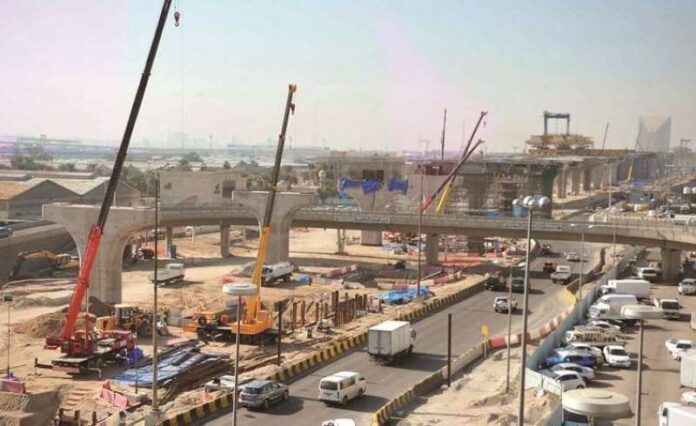In recent years, Kuwait’s construction and transportation sectors have experienced significant fluctuations, shaped by political impasses and shifting project dynamics. MEED magazine highlights these trends, shedding light on the sector’s journey from the highs of 2020-2021 to the challenges faced in 2022, reported Al-Rai Daily.
Between 2014 and 2016, Kuwait witnessed a surge in contract awards in the construction and transportation sectors, totaling around $27 billion. However, the political deadlock between legislative and executive authorities, along with disrupted decision-making processes, has brought about a distinct change in the landscape.
The magazine reports that after consecutive years of positive growth in 2020 and 2021, overall project activity has notably receded. This decline, amounting to approximately 40% in 2022, led to a reduced project market worth of nearly $1.7 billion due to fewer projects being awarded.
Nevertheless, 2023 holds potential for the sectors to rebound. Currently, Kuwait boasts planned transportation projects valued at approximately $28 billion. These projects comprise contracts worth $22.9 billion in their early stages, projects totaling $2.3 billion in the design phase, and contracts amounting to $2.8 billion in the bidding stage.
In the combined construction and transportation sectors, projects worth $4.7 billion have advanced past the pre-qualification stage and are now either in the bid submission or evaluation stages. The potential awarding of contracts, even at half this value, could make 2023 a remarkable year for contractors, potentially surpassing the successes of 2018.
However, the realization of these prospects hinges on the resumption of major plans, contingent on National Assembly approval. The challenge lies in the fact that a substantial portion of the value is concentrated in extensive projects.
In 2022, construction emerged as the second-largest project sector, with roughly $627 million in awarded contracts. In 2023, contract volumes have reached approximately $440 million, indicating a trajectory akin to the previous year. Yet, these figures fall significantly short of the average annual awards of $1.8 billion witnessed between 2018 and 2022, or the preceding five-year average expenditure of $4 billion.
The construction sector mirrors the broader trend of reduced public spending on projects due to internal political conflicts over expenditure and debt. As a result, a considerable backlog of construction projects awaits awards, amounting to around $22.9 billion. Among these, projects worth $8.7 billion are under study, $6.6 billion are in the design phase, and $7.6 billion are in the bidding stage.
In contrast, the transportation sector emerged as the powerhouse of project activity in 2022, with contracts exceeding $1 billion, surpassing the average annual total of $800 million observed between 2018 and 2022.
In conclusion, Kuwait’s construction and transportation sectors navigate a dynamic landscape influenced by political tensions and economic challenges. The year 2023 holds promise, contingent on major projects’ realization and the resolution of political barriers. While facing uncertainties, these sectors remain essential drivers of Kuwait’s future infrastructure growth.

















